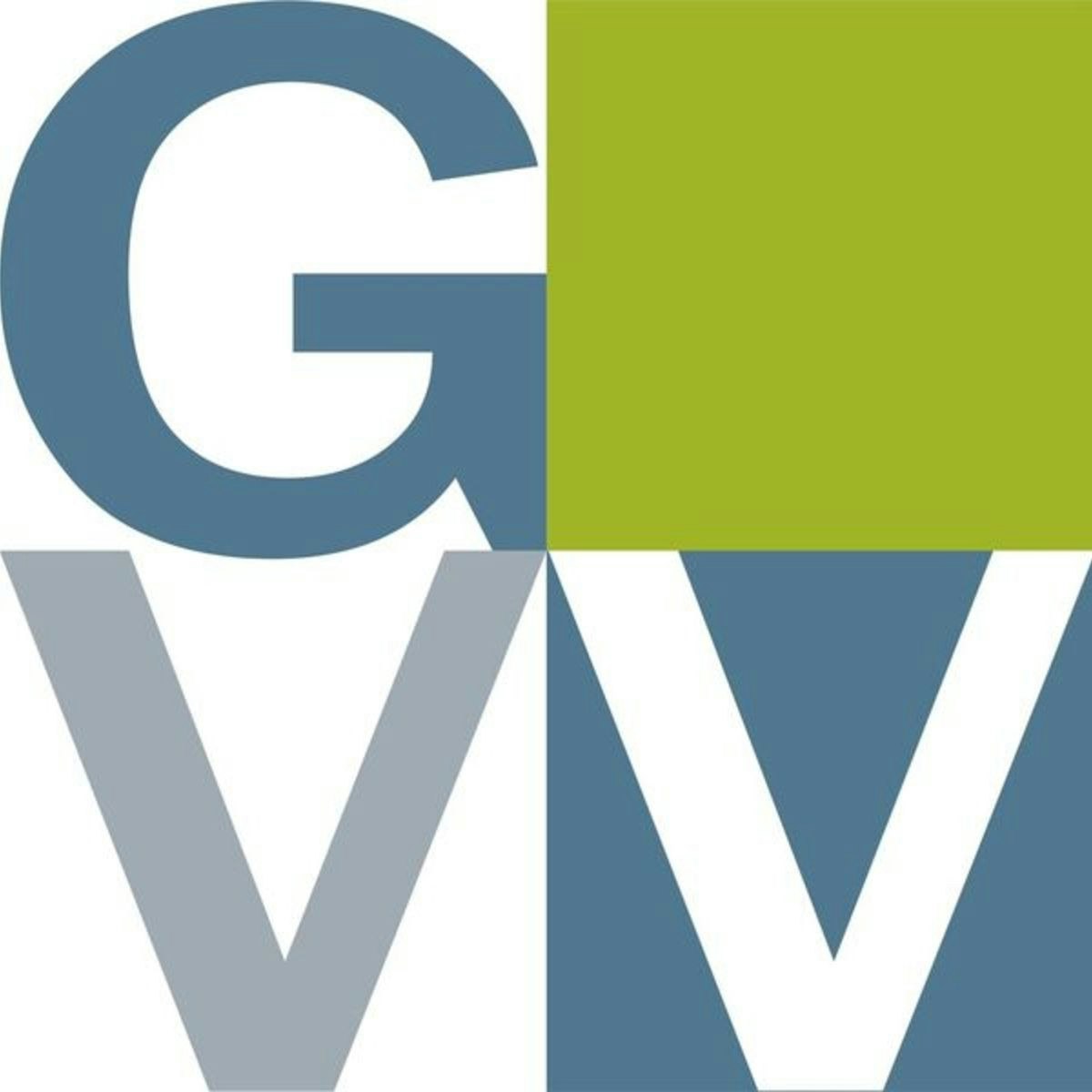Executive Coach
Executive Coach: A Comprehensive Career Guide
Executive coaching is a professional relationship designed to help leaders enhance their performance, achieve specific goals, and unlock their potential. Coaches work with executives, managers, and high-potential employees to identify strengths, address developmental areas, and navigate complex organizational challenges. It's a partnership focused on forward movement and achieving tangible results within a business context.
This field offers the opportunity to directly impact leadership effectiveness and organizational success. Many find the process of guiding individuals through significant professional growth deeply rewarding. Working closely with diverse leaders across various industries also provides continuous learning and intellectual stimulation, making it an engaging career path for those passionate about human potential and business strategy.
What Does an Executive Coach Do?
Understanding the day-to-day activities and core responsibilities of an executive coach is crucial for anyone considering this career. It involves much more than just conversation; it's a structured process aimed at fostering growth and achieving specific outcomes.
Coaching Methodologies and Processes
Executive coaches employ various frameworks to guide their clients. A popular example is the GROW model (Goal, Reality, Options, Will), which provides a structure for goal setting and action planning. Coaches help clients define clear, measurable goals, explore their current situation honestly, brainstorm potential solutions or paths forward, and commit to specific actions.
Another common tool is 360-degree feedback. This involves gathering perspectives on a leader's performance from peers, direct reports, and superiors. The coach then helps the client interpret this feedback, identify blind spots, and develop strategies for improvement based on a well-rounded view of their impact.
Client assessment is a foundational step. Coaches use interviews, psychometric assessments, and observation to understand a client's leadership style, strengths, challenges, and the organizational context. This assessment informs the goal-setting process, ensuring that coaching objectives are relevant and aligned with both individual aspirations and business needs.
These courses explore fundamental coaching techniques and leadership principles relevant to the field.
These books delve deeper into coaching frameworks and practical application.
Ethical Considerations and Confidentiality
Ethics form the bedrock of the coaching relationship. Coaches must maintain strict confidentiality, creating a safe space for clients to be open and vulnerable without fear of disclosure. This trust is essential for a productive coaching engagement.
Navigating potential conflicts of interest is also critical. For instance, an internal coach must balance the client's needs with the organization's objectives, while external coaches must manage boundaries when the organization paying for the coaching seeks progress updates. Transparency about the coaching process and reporting structures is key.
Professional bodies like the International Coaching Federation (ICF) provide ethical codes and standards that guide practitioners. Adherence to these guidelines ensures professionalism and protects both the coach and the client. Understanding and upholding these standards is non-negotiable for credible executive coaches.
This course provides insight into ethical leadership, a core component of coaching.
Measuring Impact and Reporting Progress
Demonstrating the value of coaching is essential, both for the client and the sponsoring organization. Coaches work with clients to define measurable indicators of success early in the engagement. These might relate to specific behavioral changes, achievement of business targets, improved team morale, or enhanced leadership competencies identified through feedback.
Progress tracking often involves regular check-ins against agreed-upon goals. Qualitative data, such as observed behavioral shifts or feedback from stakeholders, complements quantitative measures. Some coaches utilize specific assessment tools pre- and post-engagement to show shifts in skills or perspectives.
Reporting progress to stakeholders, typically HR or the client's manager, requires careful navigation of confidentiality agreements. Reports usually focus on progress towards goals and observed developmental themes, avoiding disclosure of specific sensitive details shared within the coaching sessions. The emphasis is on demonstrating return on investment and the positive impact of coaching on leadership effectiveness.
These courses cover goal setting and feedback, key elements in measuring coaching progress.
The Evolution of Executive Coaching
Executive coaching hasn't always been the widely recognized leadership development tool it is today. Its roots and evolution provide valuable context for understanding its current practices and professional landscape.
From Remedial Roots to Developmental Focus
Early forms of coaching often emerged from organizational psychology and consulting in the mid-20th century. Initially, it was frequently used in a remedial capacity – aimed at "fixing" problem executives or addressing specific performance issues identified by the organization.
A significant shift occurred around the 1990s. Organizations began recognizing coaching's potential not just for remediation, but for developing high-potential leaders and enhancing the capabilities of already successful executives. The focus moved towards growth, potential maximization, strategic thinking, and leadership presence.
This evolution broadened the scope and appeal of coaching. It became less about correcting deficits and more about building on strengths and preparing leaders for future challenges. This developmental focus is now the predominant approach in the field.
The Influence of Technology and Standardization
The rise of digital communication technologies has profoundly impacted executive coaching. Video conferencing platforms enable coaches to work with clients globally, removing geographical barriers and increasing accessibility. Digital tools are also used for assessments, feedback gathering, and progress tracking.
However, the rapid growth of the field also led to variability in quality and methodology. This spurred efforts towards professionalization and standardization. Organizations like the ICF emerged, establishing core competencies, ethical guidelines, and credentialing processes to bring more consistency and credibility to the profession.
Current debates often revolve around the level of regulation needed, the rigor of various certification programs, and the integration of new technologies like AI into coaching practices. The field continues to evolve as it adapts to changing business needs and technological advancements.
This book offers insights into historical and evolving aspects of coaching and related fields.
Essential Skills for Executive Coaches
Success in executive coaching hinges on a unique blend of interpersonal skills, business understanding, and specialized coaching competencies. Aspiring coaches need to cultivate these abilities to effectively guide leaders.
Interpersonal and Communication Skills
Exceptional communication skills are fundamental. This includes active listening – the ability to fully concentrate, understand, respond, and remember what is being said, beyond just the words. Coaches must also ask powerful, open-ended questions that provoke insight and reflection.
Emotional intelligence (EQ) is paramount. Coaches need high self-awareness to manage their own biases and reactions, and strong empathy to understand the client's perspective and emotional state. Building rapport and trust quickly is crucial for creating a safe and effective coaching environment.
Furthermore, coaches must be adept at providing constructive feedback tactfully and effectively. This involves balancing directness with support, helping clients see blind spots without becoming defensive, and encouraging action based on new awareness.
These courses focus on developing crucial emotional intelligence and communication abilities.
This highly-regarded book provides a framework for improving emotional intelligence.
Business Acumen and Organizational Savvy
Executive coaches operate within a business context. Therefore, a solid understanding of business principles, strategy, organizational structures, and common leadership challenges is essential. This allows the coach to grasp the client's world and the pressures they face.
Understanding organizational dynamics – the interplay of culture, politics, power structures, and communication flows – helps coaches guide clients in navigating their environment effectively. This business acumen builds credibility and ensures coaching goals align with organizational realities.
While deep expertise in a specific industry isn't always required, familiarity with general business operations and leadership responsibilities across functions (like finance, marketing, operations) provides valuable context for coaching conversations.
This course helps build understanding of organizational dynamics.
Cultural Competency and Certification
In an increasingly globalized business world, coaches often work with leaders from diverse cultural backgrounds. Cross-cultural communication skills and cultural competency are vital to understanding different perspectives, communication styles, and leadership norms, avoiding misunderstandings and building effective relationships.
While coaching is not strictly regulated like therapy or law, certification from reputable bodies (like the ICF's ACC, PCC, or MCC credentials) is increasingly expected by organizations and individual clients. Certification signifies adherence to professional standards, ethics, and a certain level of training and experience.
Different certification programs exist, varying in rigor, focus, and cost. Aspiring coaches should research programs accredited by major coaching bodies to ensure quality and recognition in the marketplace. Continuing education is also typically required to maintain certification, reflecting the field's commitment to ongoing professional development.
This course offers practice for a specific coaching certification exam.
This book explores managing across different cultures.
Educational Pathways to Becoming an Executive Coach
There isn't one single mandatory degree for executive coaching, but certain educational backgrounds and specialized training are highly beneficial and increasingly common.
Relevant Academic Foundations
Many successful executive coaches have backgrounds in fields like Psychology (especially organizational or industrial psychology), Business Administration (MBA), Human Resources, or Organizational Development. These disciplines provide foundational knowledge in human behavior, business strategy, and organizational systems.
An undergraduate degree in these or related areas can be a strong starting point. It develops critical thinking, research skills, and a basic understanding relevant to the coaching context. Some individuals pursue master's or even doctoral degrees to deepen their expertise, particularly those interested in research or teaching alongside coaching.
However, a specific degree is less important than the transferable skills and knowledge gained. Strong analytical abilities, understanding human motivation, and communication proficiency, developed through various academic paths, are valuable assets.
Specialized Coach Training Programs
Beyond academic degrees, specific coach training programs are crucial for developing core coaching competencies. Reputable programs, often accredited by bodies like the ICF, teach essential skills like active listening, powerful questioning, goal setting, ethical considerations, and various coaching models.
These programs range from short certificate courses to more extensive, graduate-level programs. They typically include theoretical learning, practical exercises, observed coaching sessions with feedback, and mentor coaching. Choosing an accredited program is important for credibility and ensures the training meets established professional standards.
Continuing education is also a staple in the coaching profession. Coaches regularly participate in workshops, conferences, and advanced courses to refine their skills, learn new techniques, and stay abreast of developments in leadership and organizational psychology. This commitment to lifelong learning is key to maintaining effectiveness.
These courses provide foundational knowledge often covered in coach training programs.
This book is a cornerstone text in many coaching programs.
Leveraging Online Learning for Coaching Skills
Online learning offers flexible and accessible pathways to acquire knowledge and skills relevant to executive coaching, whether you're just starting or looking to enhance your practice.
Flexibility and Accessibility of Online Courses
Online courses provide significant advantages, especially for career pivoters or working professionals. Self-paced courses allow learning around existing commitments, while cohort-based online programs offer structure and peer interaction similar to traditional settings, but with geographic flexibility. Platforms like OpenCourser aggregate offerings from various institutions, making it easier to find suitable options.
These courses cover foundational topics like leadership, communication, emotional intelligence, and specific coaching techniques. They can serve as an excellent starting point to explore the field, build foundational knowledge before committing to a full certification program, or supplement existing expertise.
Online learning is also valuable for continuing professional development. Experienced coaches can take specialized online courses on topics like neuroscience in coaching, team coaching, or working with specific leadership challenges to stay current and deepen their skills.
These courses offer insights into leadership and motivation, core areas for coaches.
Building Experience and Portfolios Online
While theoretical knowledge is crucial, practical experience is indispensable. Some online coach training programs incorporate virtual practicums or peer coaching opportunities, allowing learners to practice their skills in a safe, structured environment and receive feedback.
Aspiring coaches can also seek pro bono or low-cost coaching opportunities online to build experience and gather testimonials. Documenting these experiences, outlining the coaching process used, client goals, and anonymized outcomes, helps build a portfolio that demonstrates practical ability.
Combining online learning with real-world application is key. Taking an online course on feedback, for example, should be followed by intentionally practicing those techniques in peer coaching sessions or even informal interactions. This blend solidifies learning and builds confidence.
These courses focus on practical skills like feedback and goal achievement.
Integrating Online Credentials
Certificates from reputable online courses or specialized programs can enhance a coach's profile, especially when starting out or specializing. While they may not replace formal accreditation from bodies like the ICF, they demonstrate commitment to learning and expertise in specific areas.
The cost-benefit analysis of online certifications varies. Shorter, focused courses can be cost-effective ways to gain specific skills. More comprehensive online certification programs require a larger investment but may offer greater depth and recognition. It's crucial to research the provider's reputation and the program's alignment with industry standards (e.g., ICF accreditation).
Ultimately, the value lies in integrating the learning. An online certificate is most powerful when combined with demonstrated practical skills, relevant prior experience (e.g., in leadership or HR), and ideally, progress towards a recognized coaching credential. OpenCourser's Learner's Guide offers tips on choosing courses and leveraging certificates effectively.
Career Paths and Progression in Executive Coaching
The journey of an executive coach can take various forms, from internal roles within organizations to building an independent practice. Understanding these pathways and potential specializations is helpful for long-term career planning.
Entry Points: Internal vs. External Coaching
Many coaches begin their careers internally within organizations, often evolving from roles in Human Resources, Learning & Development, or management. Internal coaches work exclusively with leaders within their own company. This path offers stability and deep understanding of the organizational culture, but may limit exposure to diverse industries.
External coaches, conversely, work as independent consultants or for coaching firms, serving clients across multiple organizations. This offers variety and potentially higher earning potential, but requires strong business development skills to acquire clients. Some coaches transition from internal to external roles after gaining experience and credibility.
Entry-level opportunities might involve coaching mid-level managers or participating in larger leadership development programs under supervision. Building a track record of successful engagements is key to progressing to coaching more senior executives.
This course explores the transition from follower to leader, a common theme in coaching.
Specialization and Niche Development
As coaches gain experience, many choose to specialize. Niches can be based on industry (e.g., tech, healthcare, finance), leadership level (e.g., C-suite, new managers, high-potentials), or specific challenges (e.g., transition coaching, team coaching, communication skills).
Specialization allows coaches to develop deeper expertise and market themselves more effectively to specific client segments. For example, a coach specializing in working with startup founders will develop different skills and approaches than one focusing on executives in large, established corporations.
Developing a niche often involves targeted professional development, networking within that specific area, and tailoring marketing efforts. It helps differentiate a coach in a growing market and can lead to more fulfilling and impactful work.
These topics represent potential areas of specialization or focus.
Business Models and Earning Potential
External executive coaches typically operate using various revenue models. Hourly rates are common, particularly for shorter engagements. Project-based fees or retainer contracts for longer-term engagements (e.g., 6-12 months) provide more predictable income.
Earning potential varies significantly based on experience, reputation, specialization, target clientele (C-suite coaching generally commands higher fees), and geographic market. Building a successful independent practice requires not only coaching skills but also business acumen, marketing, sales, and financial management.
Internal coaches are typically salaried employees, with compensation aligned with HR or L&D roles at similar levels within the organization. While potentially lower than top external coaches, internal roles offer benefits and stability. Research from sources like Robert Half or industry surveys can provide benchmarks, though coaching salaries can be harder to pinpoint than more traditional roles.
Navigating Ethical Complexities
The unique nature of the coaching relationship presents specific ethical considerations that practitioners must navigate carefully to maintain trust and professionalism.
Managing Boundaries and Conflicts
Coaches must clearly define the scope and boundaries of the coaching relationship, distinguishing it from therapy, consulting, or mentoring. Maintaining professional distance while building rapport is crucial. This includes managing dual relationships, such as coaching someone who is also a friend or colleague, which can create conflicts.
Conflicts of interest often arise, especially for internal coaches or when the organization pays for the coaching. The coach's primary loyalty is to the client's development, but they must also consider the organizational context and stakeholder expectations. Clear contracting upfront about confidentiality limits and reporting protocols helps manage these situations.
Situations where a client reveals illegal or unethical behavior also present ethical dilemmas. Coaches must be aware of their ethical obligations and any legal reporting requirements in their jurisdiction, as outlined in professional codes of conduct.
Ensuring Cultural Sensitivity
Working with diverse clients requires a high degree of cultural competency. Coaches must be aware of their own cultural biases and assumptions and strive to understand the client's cultural background and how it might influence their communication style, values, and leadership approach.
This involves more than just avoiding stereotypes; it requires genuine curiosity and respect for different perspectives. Coaches may need to adapt their communication style or coaching approach to be effective across cultures. Lack of cultural sensitivity can lead to misunderstandings, erode trust, and hinder the coaching process.
Ongoing learning about different cultural norms and frameworks for understanding cultural differences is part of ethical and effective practice for coaches operating in a globalized environment.
Privacy in the Digital Age
The increasing use of digital platforms for coaching sessions, assessments, and communication introduces new ethical considerations around data privacy and security. Coaches must ensure they use secure platforms and follow best practices for protecting client information.
This includes obtaining informed consent regarding data collection and usage, understanding the privacy policies of the tools they use, and securely storing session notes and client records. Clients should be informed about how their data is protected and any limitations to confidentiality in the digital realm.
Adherence to data protection regulations (like GDPR or CCPA, depending on location) is essential. Coaches must stay informed about relevant regulations and ensure their practices comply, safeguarding client privacy in all interactions, whether face-to-face or virtual.
Market Dynamics and Future Trends
The executive coaching industry is dynamic, influenced by economic shifts, technological advancements, and evolving leadership needs. Staying aware of these trends is important for aspiring and practicing coaches.
Growth Areas and Demand Drivers
The demand for executive coaching continues to grow globally. Organizations increasingly view coaching not as a perk, but as a strategic investment in leadership development, succession planning, and navigating complexity. Growth is often strong in sectors undergoing rapid change, such as technology and healthcare.
Emerging markets also present significant growth opportunities as organizations globalize and seek to develop local leadership talent. There's also growing interest in team coaching and coaching for specific skills like leading remote teams, driving innovation, or enhancing well-being and resilience.
Factors driving demand include the complexity of modern leadership, the need for faster adaptation to market changes, and a greater focus on employee engagement and retention, where effective leadership plays a crucial role. Research by consulting firms often highlights the link between leadership quality and organizational performance, further fueling investment in coaching.
The Role of Technology and AI
Technology is reshaping how coaching is delivered and potentially, its core nature. While video conferencing expanded reach, newer tools involving Artificial Intelligence (AI) are emerging. AI might be used for analyzing communication patterns, providing personalized learning resources, or even offering basic coaching support through chatbots.
The potential impact of AI is debated. Some see it as a tool to augment human coaches, handling administrative tasks or providing data insights. Others worry it could devalue the human element of coaching or raise new ethical concerns around data privacy and algorithmic bias. According to a report by the World Economic Forum, analytical thinking and creative thinking remain top skills for the future, suggesting the human element of coaching will remain crucial.
Coaches need to become digitally literate and understand how technology can enhance their practice, while critically evaluating its limitations and ethical implications. Adapting to remote delivery models and leveraging appropriate digital tools is becoming standard practice.
This course touches upon managing virtual teams, a growing area influenced by technology.
Evolving Client Needs
Client expectations are also evolving. Leaders today face challenges related to digital transformation, diversity and inclusion, sustainability, and employee well-being. They seek coaches who understand these pressures and can help them develop relevant capabilities.
There is a growing demand for coaches who can help leaders build resilience, manage stress, foster psychological safety, and lead with empathy and purpose. The focus is shifting beyond purely performance-based goals to include holistic leadership development.
Coaches need to continuously update their knowledge and skills to meet these evolving demands. This might involve learning about positive psychology, mindfulness techniques, systems thinking, or specific frameworks related to inclusive leadership or sustainable business practices.
These courses address modern leadership challenges like positive change and purpose.
Addressing the Challenges in Coaching
While rewarding, a career in executive coaching comes with its own set of challenges. Awareness of these potential hurdles is important for setting realistic expectations, especially for those considering an independent practice.
Building and Maintaining a Client Base
For external coaches, acquiring clients is an ongoing necessity. This requires effective marketing, networking, and sales skills, which may not come naturally to everyone drawn to the helping aspects of coaching. Building a reputation and generating referrals takes time and consistent effort.
Developing a strong personal brand and clearly articulating one's value proposition is crucial. Coaches need to identify their ideal client profile and tailor their outreach accordingly. This often involves content creation, speaking engagements, strategic partnerships, and leveraging online platforms like LinkedIn.
Even established coaches face the challenge of maintaining a steady flow of clients. Engagements are often project-based, leading to potential gaps in work and income if the pipeline isn't actively managed.
Income Fluctuation and Business Management
Related to client acquisition is the challenge of managing irregular income streams, particularly for independent coaches. Unlike salaried roles, income can fluctuate significantly month-to-month depending on active contracts and payment schedules.
Effective financial planning, budgeting, and setting appropriate fees are essential business management skills. Coaches operating independently are essentially running their own small business and need to handle invoicing, taxes, insurance, and other administrative tasks.
This requires a different skillset than coaching itself. Many successful coaches invest in business coaching or administrative support to manage these aspects effectively, allowing them to focus more on client work.
Preventing Burnout and Maintaining Boundaries
The intense focus required during coaching sessions and the emotional labor involved in supporting clients through challenges can lead to burnout if not managed proactively. Coaches need strong self-care practices and clear boundaries to maintain their own well-being and effectiveness.
This includes limiting the number of clients coached per day or week, scheduling breaks, engaging in reflective practice or supervision, and pursuing personal interests outside of work. Maintaining professional boundaries with clients – avoiding over-involvement or taking on their problems as one's own – is also critical for sustainability.
The isolation of independent practice can also be a challenge. Building a network of peer coaches for support, collaboration, and shared learning can help mitigate this and provide a valuable sense of community.
These courses focus on personal well-being and resilience.
Frequently Asked Questions about Executive Coaching Careers
Here are answers to some common questions individuals have when exploring executive coaching as a potential career path.
What qualifications really matter for top coaches?
While there's no single formula, top-tier executive coaches typically possess a combination of factors. Significant, relevant experience – often prior leadership roles or deep expertise in organizational development or psychology – provides immense credibility. Formal coach-specific training and reputable certification (e.g., ICF PCC or MCC) demonstrate commitment to professional standards. Crucially, a proven track record of delivering measurable results for clients and strong testimonials or referrals are paramount. Exceptional interpersonal skills, business acumen, and high emotional intelligence round out the profile.
Can executive coaching lead to corporate leadership roles?
Yes, the skills honed as an executive coach are highly transferable to corporate leadership roles. Coaches develop deep insights into leadership challenges, organizational dynamics, strategic thinking, and influencing skills. Some coaches leverage their experience to move into senior HR, Talent Management, or Organizational Development roles. Others might transition into leadership positions within consulting firms or even operational leadership roles, particularly if their coaching niche aligns with a specific industry.
How does compensation compare to HR or consulting?
Compensation varies widely. Internal executive coaches often have salaries comparable to senior HR or L&D managers within their organization. External coaches, especially those with established practices and C-suite clients, can potentially earn significantly more than typical HR roles, sometimes rivaling earnings in management consulting. However, independent coaching income can be less predictable than salaried roles, and building a high-earning practice takes time and business development effort. Entry-level coaching roles may start at levels similar to mid-level HR or consulting positions.
What are common misconceptions about the field?
One misconception is that coaching is the same as therapy or mentoring; while related, coaching is distinctly future-focused and goal-oriented, unlike therapy's focus on healing past issues. Another is that anyone with business experience can be a coach; effective coaching requires specific skills, training, and ethical grounding. Some also mistakenly believe coaching is only for fixing "problem" executives, whereas its primary use today is developmental, enhancing the capabilities of already competent leaders.
Is prior corporate experience mandatory?
While not strictly mandatory, substantial prior experience, particularly in leadership or business-related roles, is highly advantageous and common among successful executive coaches. This experience provides credibility, a deep understanding of the client's context, and practical insights into organizational challenges. Coaches without direct corporate leadership experience often compensate with strong backgrounds in related fields like organizational psychology, extensive coach training, and a focus on specific coaching niches where their alternative expertise is highly relevant.
How might AI impact coaching opportunities?
AI presents both potential threats and opportunities. Simple, task-oriented coaching might become automated, potentially reducing demand for coaches focused solely on basic skill-building. However, AI can also be a tool for coaches, providing data insights, automating administrative tasks, or offering supplementary resources to clients. The deep, trust-based relationship, nuanced understanding of human emotion, and strategic partnership offered by skilled human coaches are difficult for AI to replicate. AI may expand the market by making basic coaching more accessible, while increasing demand for human coaches specializing in complex issues, C-suite guidance, and deep transformational work.
Embarking on a career as an executive coach is a path that demands continuous learning, strong interpersonal skills, business understanding, and a genuine passion for developing leaders. While challenging, it offers the profound reward of facilitating growth and impacting organizational success. Whether you are transitioning from another field or building upon existing expertise, resources like OpenCourser can help you find the educational tools to build your foundation and refine your skills for this dynamic and fulfilling profession.


























